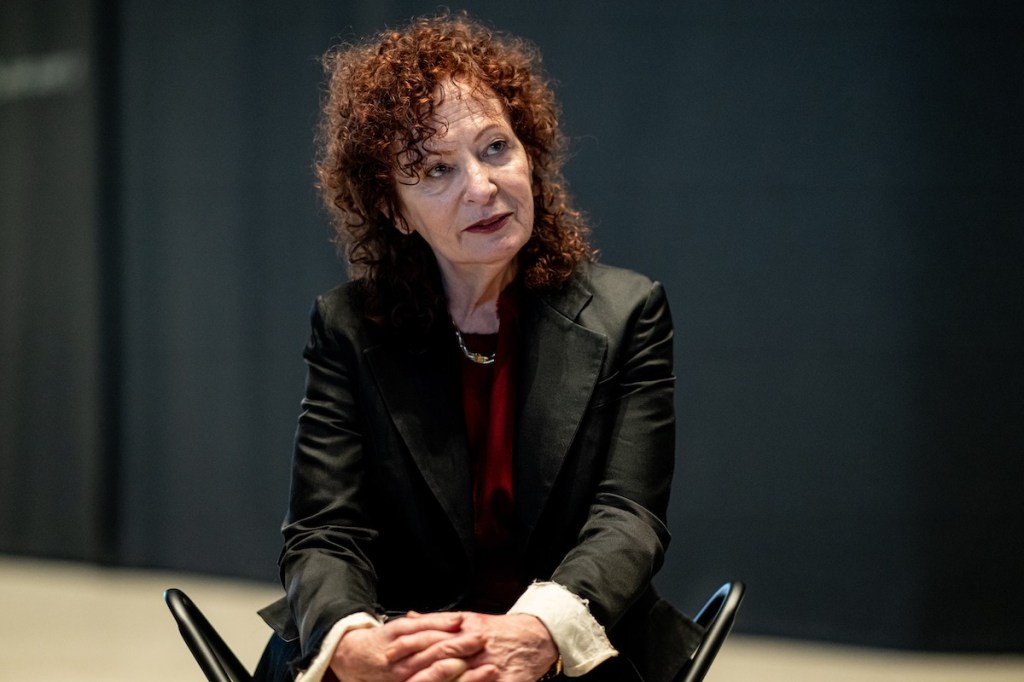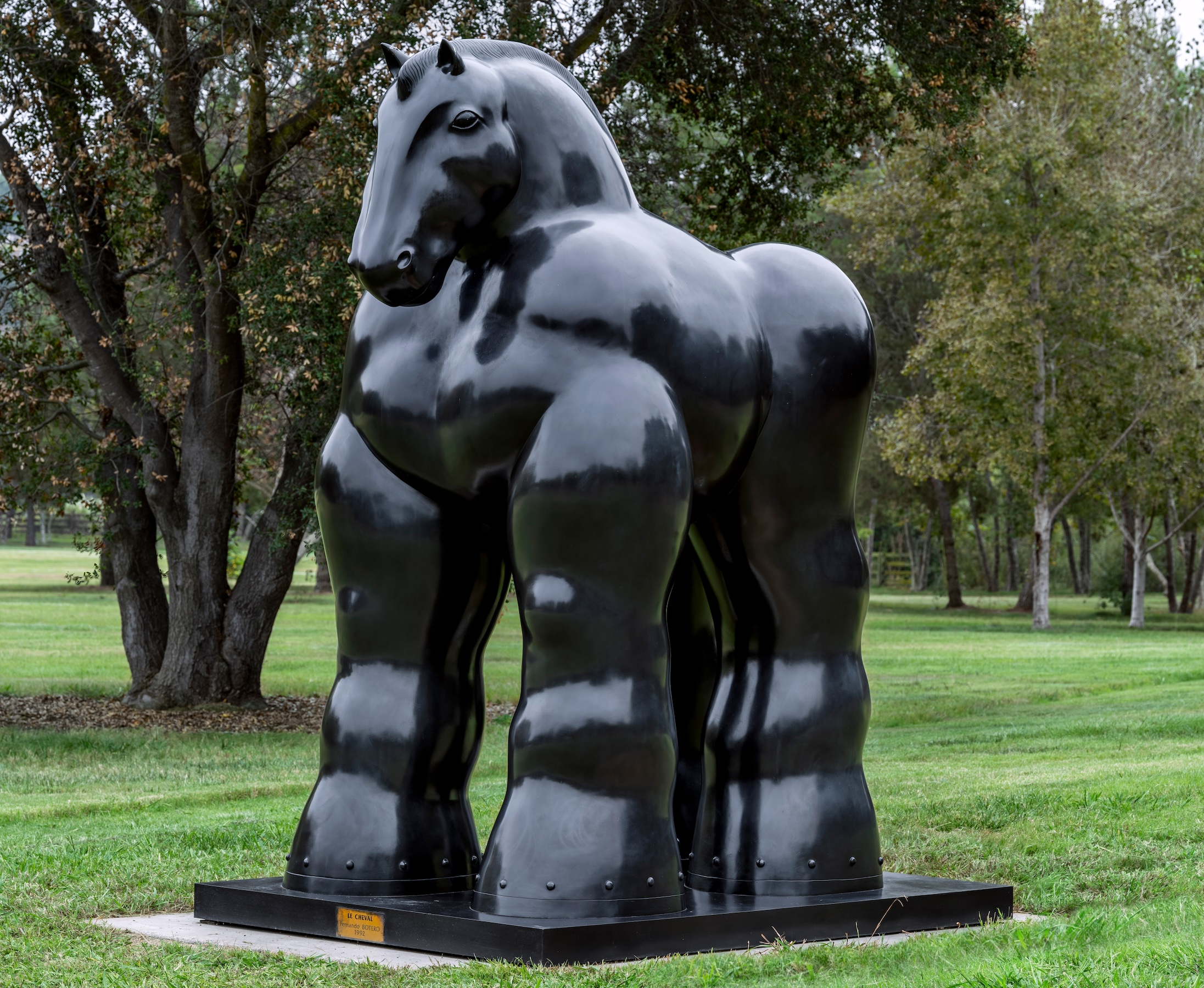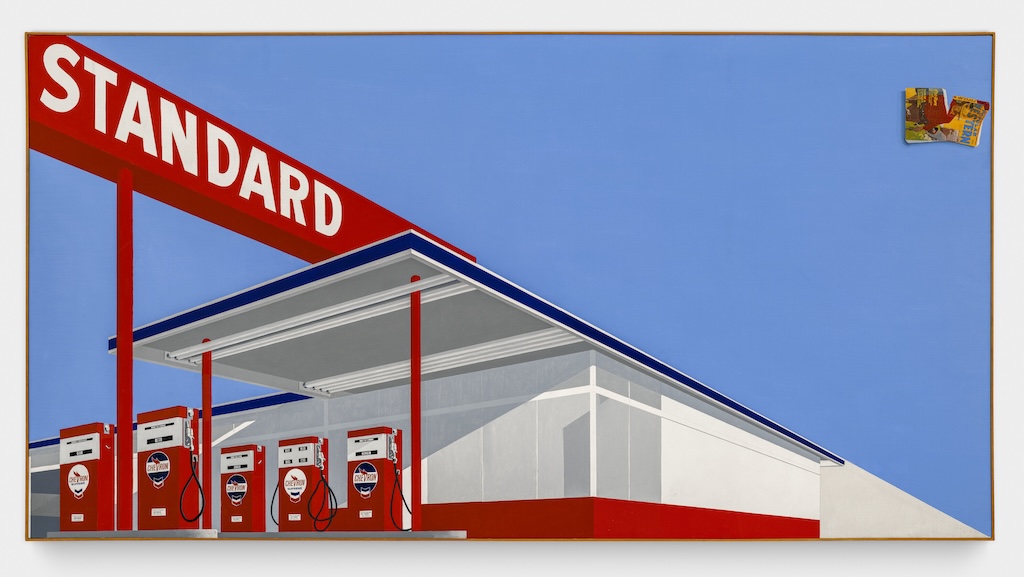In 1959, a cheeky comedy did what few films at the time were willing to do: defy Hollywood’s Motion Picture Production Code, a restrictive set of censorship guidelines aiming to keep any allusion to queerness, and other taboo subjects, off the big screen.
The movie, “Some Like It Hot,” follows two cisgender, heterosexual white men (Jack Lemmon and Tony Curtis) who escape a mob boss by dressing in drag and joining an all-female traveling band. Despite flouting the so-called Hays Code, the film was a hit at the box office and is still regarded as a classic to this day.
As progressive and groundbreaking as director Billy Wilder’s project was, it also highlights the limitations of pop culture from that era. It has an entirely white cast (including Marilyn Monroe as the female lead) and only flirts with the idea of a queer romance, without committing to one.
Comedy maven Amber Ruffin, 44, struggles with the film for reasons like these. “No one made that movie thinking about me,” she told HuffPost during a video call.
Though she appreciates that many people feel nostalgia for it, with some able to fondly remember their first time watching the movie, that’s not a feeling she shares.
Donaldson Collection via Getty Images
“It certainly wasn’t in the rotation at the Ruffin household,” she said. “My parents weren’t like, ‘You have to watch this movie.’”
But her childhood home in Omaha, Nebraska, didn’t go entirely without the time-honored tradition of parents assigning movies to kids, either because a particular film is important or classic, or just because Mom and Dad love it. “Dad would love to try to make you watch ‘Ben-Hur’ and stuff like that,” Ruffin recalled with a gentle sneer. “You’ll be watching that by yourself.”
Ruffin, the youngest of five, was more into the films her older sisters watched, like 1976’s “Car Wash,” 1984’s “Beat Street” and 1985’s “The Last Dragon.”
“Those were the staples in the house,” she said.
Still, “Some Like It Hot” made enough of an impression on her that she returned to it later in life. And that decision would mark a turning point in her career, which had already been catapulted by myriad accomplishments.
Those included joining prestigious improv troupes like The Second City and Boom Chicago in Amsterdam, writing “two full-ass musicals” and becoming the first Black woman to write for a late-night network talk show at “Late Night With Seth Meyers.”

Ruffin also hosts her own self-titled talk show and penned the 2021 New York Times bestseller “You’ll Never Believe What Happened to Lacey: Crazy Stories About Racism” with sister Lacey Lamar.
“When I watched [‘Some Like It Hot’] again as an adult, I was like, ‘There’s some work that has to be done,’” she said. “It’s tricky because the work that has to be done has to do with why it’s everyone’s favorite. So, the very thing that people celebrate about this movie is what has to go.”
And when the offer came along to join Broadway’s new musical production of “Some Like It Hot” as a writer, alongside Matthew López, it was a chance to create an iteration of the 1959 narrative that did, actually, have people like her in mind.
“I saw it more as an opportunity to get grandparents and grandchildren on the same page,” Ruffin noted. “That was the most exciting thing to me about it. What if you could take your grandpa to see something he loves, and you can also love it?”
These days, that seems like a nearly impossible feat, as the generational divide often feels galactic. Younger audiences can be just as critical of past entertainment as older adults can be of contemporary entertainment. There’s often a dismissiveness coming from both directions.

Sometimes that’s with good reason, but other times it’s just exasperation. Even Ruffin said, “Our grandparents love some mess, dude.”
But Broadway’s “Some Like It Hot” is a vibrant, rare exception that bridges the gap between generations, as it retains just enough of the original story while also weaving in concepts and ideals appreciated by younger people.
In the musical, Monroe’s sultry vocalist Sugar Kane is played by Adrianna Hicks, a phenomenal Black performer. Natasha Yvette Williams brings to life Sugar’s employer, Sweet Sue (originated by white actor Joan Shawlee). Meanwhile, J. Harrison Ghee, a nonbinary Black actor, steps into Lemmon’s role of Jerry/Daphne, who now fully blossoms as a queer musician.
All of this manages to entertain, move and utterly floor audiences without disrupting the essence of the 1959 story. And the show’s received 13 Tony Award nominations, including one for Ruffin and López for Best Book of a Musical.
To think, Ruffin wasn’t a part of the show in its early stages. Four or five years ago, she had begun working on an entirely different Broadway musical — an update of “The Wiz” that’s set to arrive this fall — when the folks behind “Some Like It Hot” came calling.

She was familiar with the new production and had a lot of faith in it even back then, largely because of the talent involved: director/choreographer Casey Nicholaw, composer Marc Shaiman and lyricist Scott Wittman, as well as López.
“I was like, ‘This is a hit,’” Ruffin remembered. “I knew it, and then I saw it. It was so much better than I thought. They were like, ‘We need help with this.’ And I was like, ‘The fuck you do — this thing is the best.’”
But actually, “Some Like It Hot” did need her. The creatives then were all men, and not one of them was Black. “They looked around, and most of the cast was Black,” Ruffin recalled. “They were like, ‘Hmm …’”
“So, much to their credit, they were like, ‘Are we doing the right thing here?’” she continued. “I came along, and I like to think that I helped give a more authentic voice to a lot of the Black women in the show. And also, I like to think that I helped make it a little bit sillier.”
The bar was already set high from the comedic genius of Curtis and Lemmon, as well as Monroe’s timing. But the musical is a perfect marriage of inclusivity and the same emotional beats from the film— just queerer and Blacker, with soulful and big-band musical numbers throughout. It’s a delight.

That’s because it still has the interior of the film, but with something extra to appreciate. “It’s like this laser-focused telling of the story,” Ruffin said, recalling how Nicholaw and her other partners all contributed. “It is the singular thought of a man who adores it, but it’s really five of us in there beating it up.”
Ruffin acknowledged that the Tony nods didn’t even click with her at first, since she continues to see herself as such a fan of the show.
“When we got nominated, I guess I had just kind of forgot that I was also a part of it,” she said. “I was like: ‘Of course, this show’s going to get a fucking billion nominations. It’s the shit.’ But then I was like, ‘Oh, my God, I’m a part of it.’”
And most of all, she gets to have fun — one of her main objectives in life. It’s what has helped her jump from one type of job to the next, often figuring things out along the way, without much else of a guide or purpose. “I was chasing what the most fun thing to do was.” Ruffin said. ”I wasn’t hatching a plan to become a this and that. I was just having the most fun of all time.”
That meant moving to Los Angeles and learning how to write musicals after realizing it was “the thing to do,” writing jokes for late night television and for sitcoms like “A Black Lady Sketch Show,” and ultimately entering the Broadway world.

And Ruffin has loved every minute of it. But as adaptive as she is, picking up a new skill hasn’t always been enjoyable. “You’ll never hear me complain except this tiny bit: Oh, my God, just stay in one thing that I’m already good at,” she laughed. “I hate learning.”
She certainly hides it well. “I’m a learner and a whiner,” she clarified.
Fair enough. But after spending most of her time these days writing, she barely has a moment to do anything else. She could be more than satisfied vegging out in front of her TV watching hours of the Eurovision Song Contest — “It’s funny because they’re all performers, but almost none of them are singers” — or reciting lines from the 2004 rom-com “Spanglish.”
Though she hasn’t seen the movie in a long while, it was practically on loop in her Amsterdam apartment years ago since it was the sole DVD on hand. “I watched it all the time as it was my only option,” Ruffin said. “I developed a love for it. But after that, I loved it.”
“Spanglish” is filled with Latina stereotypes and helmed by a white male filmmaker (James L. Brooks). So, as enjoyable as the film is, it’s also pretty problematic. Sound familiar?
“Yikes,” Ruffin said. “Our ‘Spanglish’ is our parents’ ‘Some Like It Hot.’” And with that, we’ve come full circle.










